This lesson will focus on the case Korematsu v. U.S. in comparison with other times in U.S. history when the government was faced with the challenge of how to protect the country during war and, at the same time, protect individual freedoms. Using primary sources, students will examine five events in which U.S. citizens were forced to give up their civil liberties in times of war, highlighting the tension between liberty and security. Students will analyze these events to determine what groups were affected and the reasoning for and against the government action to decide if the government action was justified. Students will be able to form an opinion on the essential question: Is our government ever justified in restricting civil liberties for the security of the nation?
14th Amendment
The 14th Amendment granted U.S. citizenship to former slaves and contained three new limits on state power: a state shall not violate a citizen’s privileges or immunities; shall not deprive any person of life, liberty, or property without due process of law; and must guarantee all persons equal protection of the laws.
Key Constitutional Concepts: Right to Counsel
The landmark Supreme Court case Gideon v. Wainwright examines the impact that one event can make on the Constitution through the judicial process. This lesson is designed to give students an opportunity to interact with the Constitution
One Person, One Vote: Baker v. Carr and Reynolds v. Sims
This lesson explores these questions: “Does the Constitution require that every person’s vote count the same as another person’s vote? Why would that be important?”
A Conversation on the Fourteenth Amendment
Three key components of the Fourteenth Amendment – due process, equal protection, and privileges and immunities – are explored in this lesson.
Equal Justice Under Law: Yick Wo v. Hopkins
This lesson teaches about the cause-and-effect relationships between historical events and the development of constitutional principles that protect the rights of all people in America today.
The Power of One Decision: Brown v. Board of Education
Through the lesson, students gain insight into decision-making at the Supreme Court, learn about the people behind the case, construct a persuasive argument, and evaluate the significance of Brown v. Board of Education.
A Conversation on the Constitution with Justice Anthony Kennedy: The Importance of the Yick Wo Case
Justice Kennedy discusses the ruling in Yick Wo v. Hopkins in which the U.S. Supreme Court decided that the unequal application of a law violated the 14th Amendment.
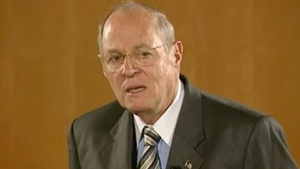
A Conversation on the Constitution with Justice Ruth Bader Ginsburg: The Fourteenth Amendment
Incorporating three integral constitutional tenets – due process, equal protection, and privileges and immunities – the 14th Amendment was originally intended to secure rights for former slaves, but over the years, it has been expanded to protect all people. Justice Ginsburg discusses with students its importance.
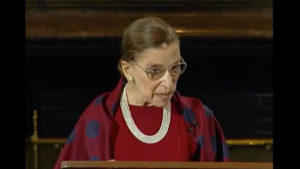
One Person, One Vote: Baker v. Carr and Reynolds v. Sims
In this documentary, Justices Sandra Day O’Connor and Stephen G. Breyer and other experts discuss how the principle of one person, one vote emerged from a series of landmark decisions in the 1960s, including Baker v. Carr and Reynolds v. Sims.
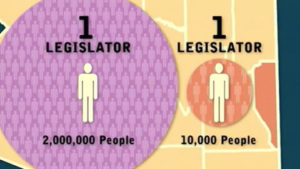
Korematsu and Civil Liberties
This documentary explores the landmark case Korematsu v. U.S. (1944) concerning the constitutionality of presidential executive order 9066 during World War II that gave the U.S. military the power to ban thousands of American citizens of Japanese ancestry from areas considered important to national security.
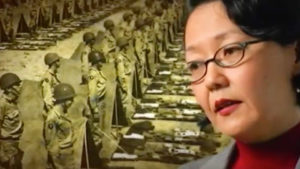
Jury Selection: Edmonson v. Leesville Concrete Company
This documentary tells how an African American construction worker’s personal-injury lawsuit against his employer evolved into a landmark jury selection case Edmonson v. Leesville Concrete Co. on the Sixth Amendment right to an impartial jury.
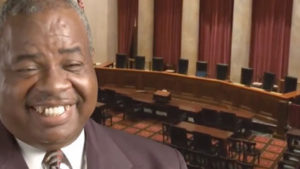
A Conversation on the Constitution with Justices Stephen Breyer, Anthony Kennedy and Sandra Day O’Connor: The Importance of the Japanese Internment Cases
After the attack on Pearl Harbor, the U.S. government sent people of Japanese ancestry to internment camps. The U.S. Supreme Court upheld the government’s right to restrict the liberty of these citizens and noncitizens in two cases: Korematsu v. U.S. and Hirabayashi v. U.S.
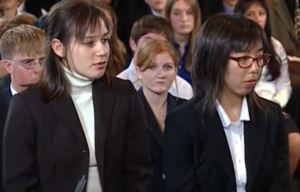
A Conversation on the Constitution with Justices Stephen Breyer, Anthony Kennedy and Sandra Day O’Connor: Brown v. Board of Education
Supreme Court Justices Stephen G. Breyer, Sandra Day O’Connor and Anthony M. Kennedy discuss with high school students the landmark case Brown v. Board of Education that ended racial segregation in schools.
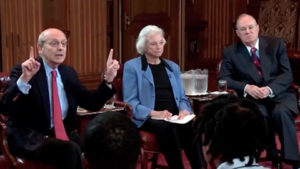
Yick Wo and the Equal Protection Clause
This documentary examines the case Yick Wo v. Hopkins (1886) in which the Supreme Court held that noncitizens have due process rights under the 14th Amendment’s equal protection clause. The Court said that unequal application of a law violated the rights of a Chinese immigrant.
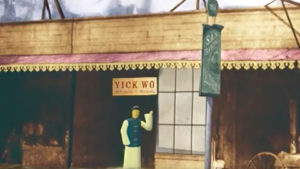
Thurgood
“Thurgood” is a production of the critically acclaimed play starring Laurence Fishburne as the nation’s first African-American Supreme Court justice.
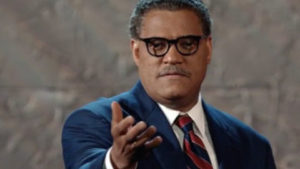
A Conversation on the Japanese Internment Cases
Essential Question: Should the executive branch have the authority to deny individual rights and liberties during times of war, even if it is done in a discriminatory way?